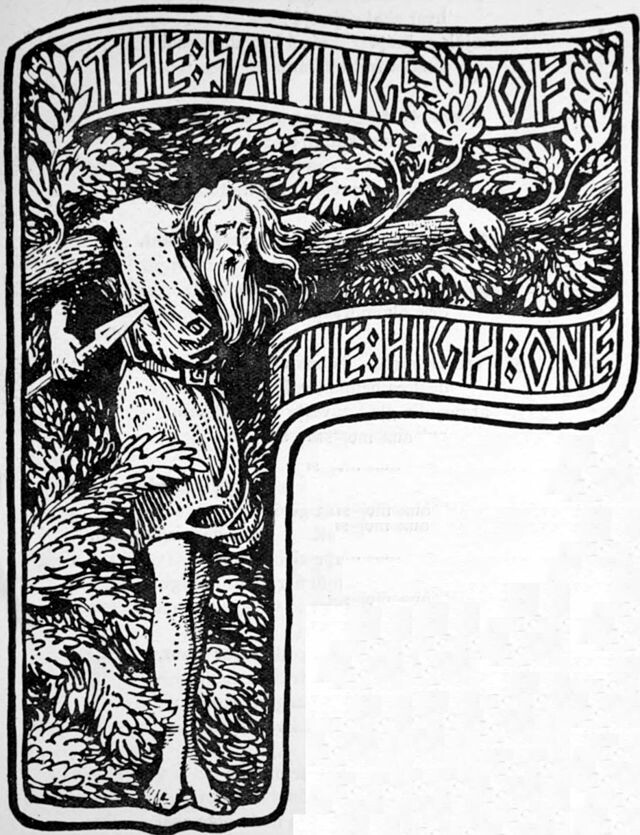Charlotte, Anansi, and Odin, Oh My! (Part 3 of 3)
May 22 2021
We have talked about the power of the written word as well as of oral knowledge-sharing. When it comes to Odin’s story, the power of the two converge.
Compared to other literate cultures of the time, the Norse left very little in the way of written work behind. This was likely due to how they viewed writing. According to Norse beliefs, you see, written words held magical power. As such, writing was typically saved for important things such as trade agreements, runestones commemorating something, and spellcasting. That being said, the high standing of the written word in Norse culture didn't mean the Norse saw oral tradition as a lesser form of knowledge transference. Rather, the two methods held equal standing but were used for different situations, much like how a modern person might use different media to pass on different kinds of information. There were knowledge-keepers whose sole job was to memorize all the laws of the land and recite them when a trial was to take place, while one of the marks of a good skald (poet) was whether they could memorize an entire poem by just hearing it recited once.
It's worth noting that most stories we have from Norse mythology, such as the two we will look at right now, were written down at the latter half of the Viking age (and in some cases, shortly after said age had ended) because such information was previously transferred orally.
In the poem Rúnatal, or Odin’s Rune Song, we get a glimpse at just how powerful the Norse considered written language to be. In it, Odin tells us about a time where he was “hung on a windy tree/nine long nights, / wounded with a spear” as a sacrifice. In the ninth night, he finally “spied the Runes” (the letters of the Norse alphabet), who had found him finally worthy of learning how to wield their power:
“Then I was fertilized and became wise;
I truly grew and thrived.
From a word to a word I was led to a word,
From a work to a work I was led to a work.”
Much like Anansi with his story chest, upon being granted knowledge of the Runes Odin did not hoard the newfound power to himself. He travelled the world sharing what he had learned with any who wanted to hear.
Similarly, in Skáldskaparmál (The Language of Poetry), Odin and Loki work together to steal the Mead of Poetry from the Dwarves (who were hoarding it for themselves) to share it with the residents of Asgard (one of the nine worlds in Norse cosmology), showing that oral tradition was viewed as equally important in Norse culture.
Fun sidenote: In Skáldskaparmál we are also taught about where good vs bad poetry comes from. In the story, Odin gulps down all the mead, turns into a bird, and flies off with the drink in his mouth. The Dwarves, none too happy with having their mead stolen, give chase. Odin is in such a hurry to get to Asgard before he is caught that some of the mead spills out of his mouth and falls to Earth to land on people walking around and creating the first good poets and scholars. In his hurry, some of the mead also comes out his back end and lands on people, creating the first bad poets.
By Alice Flecha (Volunteer Blogger)

